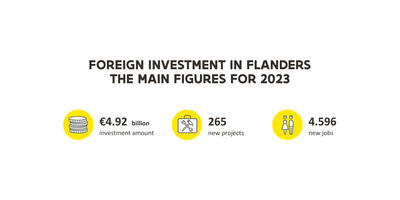
Water purification plant in a container developed in Flanders

Successful testing with both seawater and freshwater
Tests with the desalination of seawater in the town of Nieuwpoort, in addition to tests with the purification of freshwater from the Dijle river in Leuven, indicate that the AquaBREG concept is ready for commercialization. The purification process already starts outside the container where tanks retain heavy particles such as sand while an activated carbon filter removes products such as oil from the water. Inside the container, filters and a disinfection system remove bacteria, viruses and microplastics.
“Earlier this year, in Nieuwpoort, we also conducted a test with the desalination of seawater, which requires an additional step,” explains Alexander Vos, son of Johan Vos and project manager at BREG subsidiary AquaBREG.
Up to 1 million liters per day
The innovative system operates 24/7 and can deliver up to 1 million liters of water every day with little intervention required. “It is advisable for a maintenance worker to come once a week to check everything, although most of the system can be monitored remotely. Replacing filters or refilling certain products only needs to be done every other month or so,” explains engineer Nibret Tenaw, who co-developed the concept of the plug-and-play water purification container. This makes the system perfectly suitable, for example, for emerging markets, remote areas or even islands where drinking water is usually supplied by ship.
“However, AquaBREG is not a standardized solution,” water quality specialist Eithar Waheed points out. “Every water source is different. First, you need to carry out extensive tests and laboratory analyses to know what needs to be removed specifically to purify the water and what kind of pretreatment is required.”
Toward commercialization at home and abroad
The AquaBREG water treatment business is a side project of BREG’s green energy activities. “The link with sustainable energy allows to differentiate AquaBREG from competitors,” explains Johan Vos. “We can provide the water treatment system in combination with solutions to supply the necessary power to run the system: solar panels, a small wind turbine, battery storage – you name it! This enables us to offer the water treatment system anywhere in the world, even if there is no power grid.”
Following several months of testing in Nieuwpoort and Leuven as well as quality certification by independent labs, AquaBREG is now ready to take the next step and start commercializing the first systems. The initial goal is to sell at least five in 2023. The first customers will most likely be Belgian agricultural or industrial companies. After that, the focus will broaden to markets with chronic drinking water shortages as well as the world’s thousands of islands that lack water supplies of their own.


